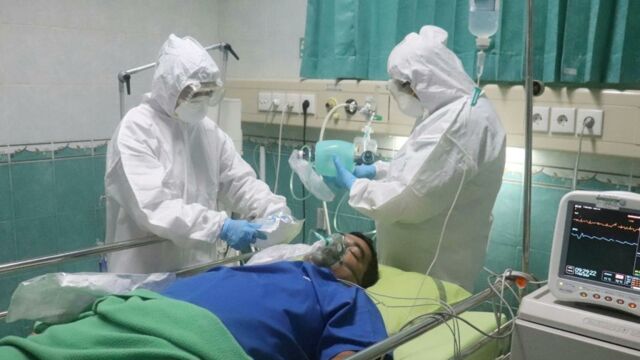TW: Disturbing details of death
Discover our latest podcast
Death is something that we are often afraid of. Whether you wonder where you will end up, you believe in some kind of afterlife, or whether you wonder what will happen to your physical remains - there is always some element of fear. Indeed, the bodies of hundreds of people lie frozen in storage containers around the world thanks to a hope of one day getting a second shot at life.
We’ve talked about people who have died and come back to life, such as the improbable story of the man who fell off a cliff. But today, we’ll talk about a man who tragically did pass away - but not before experiencing one of the most painful deaths known to mankind.
Tokaimura nuclear plant accident
The man in question was called Hisashi Ouchi, and he worked at Tokaimura’s nuclear fuel-processing plant. In 1999, he was working alongside colleagues in order to produce fuel rods for a research reactor.
Ouchi and two co-workers made a fatal mistake in their calculations, which saw the accidental release of radiation from a nuclear chain reaction. They poured uranium into a massive metal vault, but the liquid hit a ‘critical point’ due to their error in the planning process.
There were 119 staff members affected by the terrible accident that followed, but 35-year-old Ouchi’s wounds were by far the worst.
Ouchi hit by radiation
119 people were hit by the harmful radiation that escaped as a result of the accident. Ouchi suffered burns, violent vomiting and became dizzy - but this was nothing compared to what came next.
To give you an idea of the severity of the situation, let’s look at some figures. That day, Ouchi was exposed to 17 Sieverts (sv) of radiation. The first responders to Chernobyl’s explosion in 1986 were hit with only 0.25sv. Ouchi’s dose was the highest in record, and double what is considered a legal amount.
Ouchi’s skin melted off
Ouchi was transferred to the University of Tokyo Hospital. He was battling with severely depleted white blood cells and underwent multiple skin grafts and blood transfusions. His bone marrow cells were showing signs of fragmentation and he was unable to produce any new cells. At this point, he didn’t even want to hold on to life anymore: reports say that he was crying blood and begging doctors to simply put him out of his misery. Two weeks after the accident, he couldn’t even eat - he had to be fed intravenously with a tube.
However, the doctors did everything they could to try to save him. Two months after the accident, his heart failed but they revived him. Eventually, 83 days after the terrible incident, Ouchi died of multiple organ failure.
Many who witnessed his struggle said he suffered ‘the most painful death imaginable’.
Read more:
⋙ Woman, 78, dies after surgical robot ‘burnt a hole in her intestine and caused a fatal leak’
⋙ This man dies mid-flight after 'coughing up liters of blood', leaving passengers traumatized
⋙ Man dies and comes back to life after ambulance runs over pothole
Sources used:
UNILAD: Man suffered most painful death imaginable after horror accident which made his 'skin melt'
World Nuclear Association: Tokaimura Criticality Accident 1999















